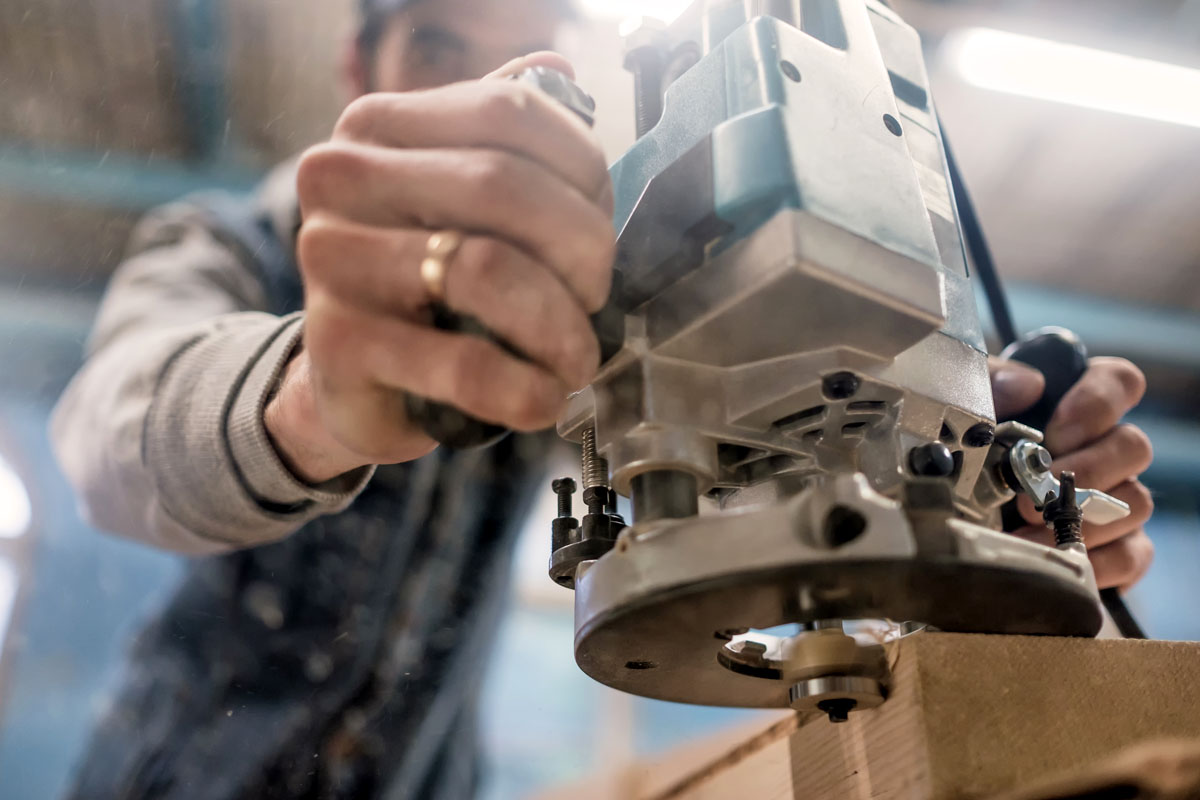Edge Trim
Which is the Best Tool for Your Millwork, a Router, or a Shaper?
Selecting the optimum tools for your workshop is essential in ensuring your projects are finished correctly and efficiently. In the world of architectural millwork, there is a large variety of woodworking applications that often require either a router or shaper. Below are the differences between the two and how they could help you find the best workshop tools for different situations.
Routers and Router Tables
A router is a tool (often hand-held) that hollows out an area in a hard material such as wood or plastic. Primarily used in architectural millwork, a router or router table uses bits that have a shank that is attached to a cutter and is driven by an electric motor. Router bits tend to be smaller, cheaper, and easier to find than shaper bits, lowering the overall cost of use. The motor used in a router is considered universal and is similar to motors found in products like shop vacuums and benchtop planers. On average, a router runs at a speed between 22,000 and 25,000 RPMs. While this is a higher RPM speed than a shaper, it still consumes less energy.
Because of the quicker speed, smaller diameter, and decreased power use, the router can be one of the best workshop tools for producing clean cuts and allowing for smaller or more intricate cuts to be completed. If you are looking to make a deeper or larger cut using your router or router table, it may take several passes to complete which can decrease the level of precision on your millwork projects. Routers and router tables often require additional passes and each piece is done by hand which means that human error may affect the overall quality if you are creating many identical cuts.
Shapers
A shaper is a machine tool that uses motion like a router to create shapes in a material. Shapers are used more often in industrial woodworking environments. A shaper is a more sturdy and heavier built machine that can easily be fitted with a power feeder to produce a high volume of material. A shaper uses a spindle that accepts a cutter head that slides on. The spindle sizes that shapers can use range from ½” to 1-1/4” in diameter. These cutter bits tend to be more expensive than router bits but are designed for all-day use which means they last longer than the router bits would.
Shapers are the best workshop tools for larger cuts and run between 7,000 to 10,000 RPMs. The large induction motor uses a lower RPM and a higher power level to slice through wood. This means that the shaper operates well under high volumes and heavy types of millwork production. Because of the motor strength, you can also be more efficient and complete a dramatic cut (in both depth and height) in one pass which can save time. The cut depth can be saved on a shaper so any type of possible human error that could jeopardize the consistency of the millwork cuts will be minimized.
Routers, Shapers, and Eagle Aluminum
Eagle Aluminum is your premier aluminum supplier to the architectural millwork industry. We provide the cutter bits needed to apply our architectural millwork trims including our aluminum slatwall inserts and aluminum tee edging. Our large selection of architectural extrusions and corresponding cutter bits are ready to ship, contact our customer service team today!


